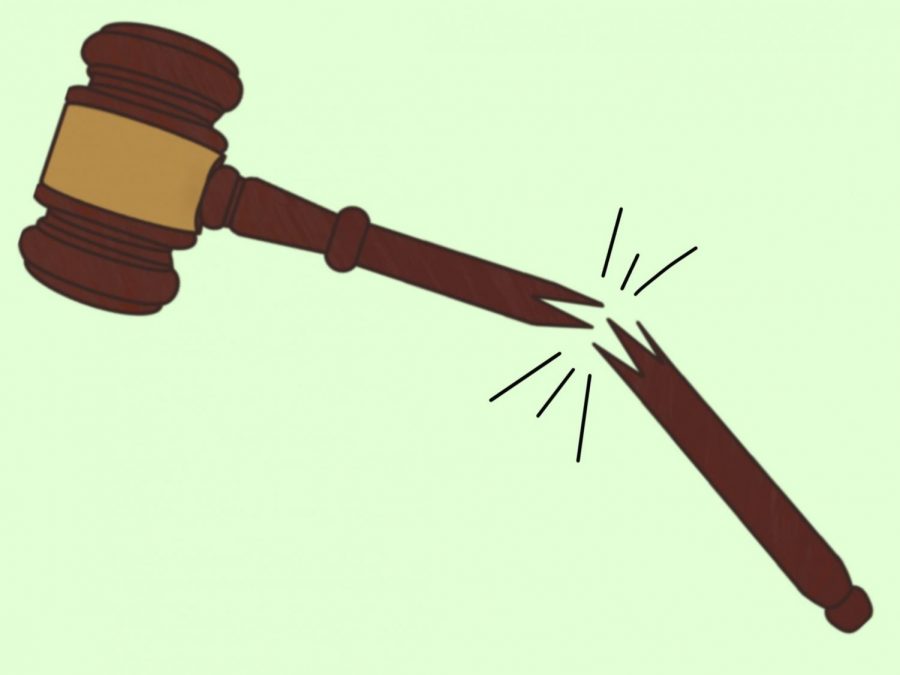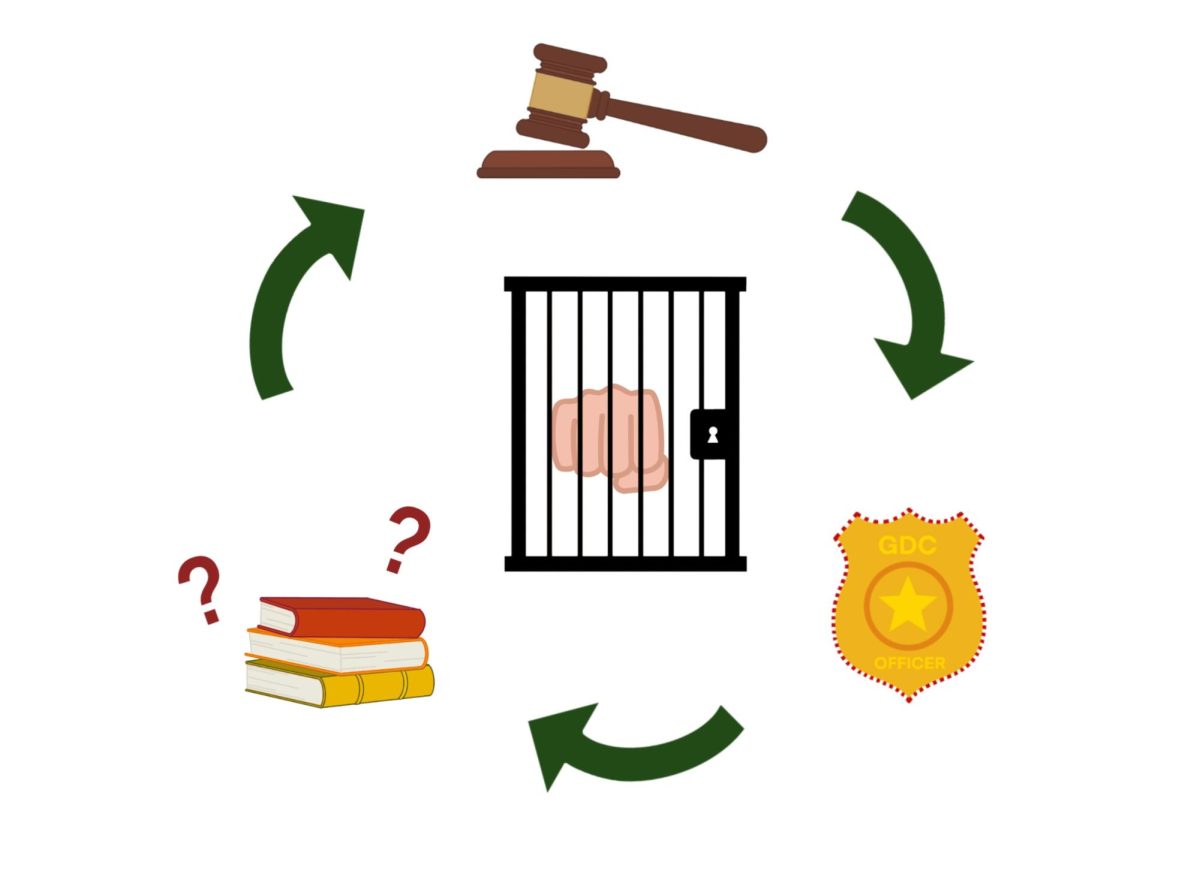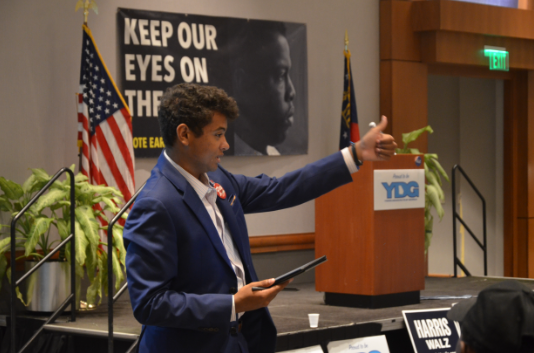Honor RBG’s wishes: no confirmation until inauguration
In the wake of Justice Ruth Bader Ginsburg’s passing, the Senate and nation remain divided over the confirmations of nominee Amy Coney Barrett.
October 13, 2020
Within a week of Justice Ruth Bader Ginsburg’s passing, President Donald Trump dishonored her final request to “not be replaced until a new president is installed.” Trump nominated Amy Coney Barrett to fill the vacancy, and the Senate Judiciary has already begun her hearings. The confirmation of this nomination is not only politically hypocritical but also Barrett, if confirmed, could effectively undo Ginsburg’s legacy.
According to the Cornell Law School, common law systems like the American legal system rely heavily on precedent. That same principle applies to political proceedings, and by Trump nominating Barrett before Election Day on Nov. 3, he effectively superseded the precedent set by President Barack Obama in 2016.
When conservative Justice Antonin Scalia passed in February 2016, Obama nominated Merrick Garland in the spring to fill the vacancy. According to NPR, Garland was widely regarded as a moderate and was even praised by many Republicans. However, once Obama made his nomination, Senate Majority Leader Mitch McConnell was quick to block the nomination process, claiming the people should have a say in who would be the next Supreme Court Justice. By refusing to even consider Garland to fill the vacancy before the election, Senate Republicans established a new precedent. The Brookings Institute, a centrist nonprofit public policy organization, put it best, writing “there was no historical justification for denying Garland a vote; thus, voting for Trump’s late-2020 nominee is hypocritical.”
President Trump and Senate Republicans vocalized their intent to double back on the precedent set in 2016 as early as the night of Ginsburg’s passing on September 18, exacerbating the political divisions in the nation. President Trump only fanned the flames by nominating Barrett, a conservative judge whose views on reproductive health and other women’s issues directly oppose Ginsburg’s life work.
Throughout Ginsburg’s career, she was known as a trailblazer for women’s rights. According to the American Civil Liberties Union, Ginsburg led the ACLU Women’s Rights Project from its inception in 1972 until she was appointed to the federal court in 1980, arguing many cases before the Supreme Court and building the legal foundation against sex discrimination. Once she was nominated to the Supreme Court, Ginsburg continued to stand for women’s rights, voting to protect reproductive health in cases like Roe v Wade and writing prolific dissenting opinions when she felt the court didn’t do women justice. For instance, in 2007, in the Ledbetter v Goodyear Tire & Rubber Company case, the Supreme Court ruled 5-4, denying Lilly Ledbetter the right to sue her employer for pay discrimination based on gender because too much time had passed since the violation. Ginsburg dissented, writing that the court had a precedent of determining “salaries infected by gender based discrimination” unlawful.
However, Barrett’s track record stands in stark contrast to Ginsburg’s lifelong commitment to fighting for women’s rights. According to Tomiko Brown Nagin, Dean of Harvard’s Radcliffe Institute for Advanced Study and constitutional law professor at Harvard Law School, Barrett has referred to abortion as “immoral” and reasoned that justices aren’t automatically limited by precedent. She, like many anti-abortion voices, has demonstrated a willingness to gut Roe v Wade, leaving the fate of women’s reproductive health in the hands of state legislatures. In 2006, she signed on to a newspaper ad calling for Roe v Wade to be overturned. Barrett’s commitment to undermining reproductive justice shows she will not be the champion of women’s rights that Ginsburg was.
Even if some find Barrett’s views on potentially overturning a well-established precedent like Roe v Wade not that concerning, her tendency to blur the lines between church and state is most certainly worrying.
According to Saikrishna Prakash, a professor at the University of Virginia School of Law, it is common for Senators in the Senate Judiciary Committee to pinpoint doubts and concerns about a nominee throughout the process. In Barrett’s case, her ties to the People of Praise, which according to their website is a “charismatic Christian community,” is a source of concern. According to the New York Times, the group believes “that husbands are the heads of their wives and should take authority for their family.” The New York Times interviewed many legal experts who said that Barrett’s involvement in such a group “could raise legitimate questions about a judicial nominee’s independence and impartiality.”
During the first day of hearings, Barrett made it very clear that she is an Originalist, believing that the Constitution leaves little room for interpretation. She said, “The policy decisions and value judgments of government must be made by the political branches elected by and accountable to the people.” However, many Senate Democrats are concerned about Barrett’s stance on upcoming key cases about healthcare, abortion rights and same-sex marriage. For instance, the Supreme Court is set to hear a case about the constitutionality of the Affordable Care Act in the week following the election, so many Senate Democrats steered the hearing towards healthcare. A Barrett confirmation could mean the end of the Affordable Care Act, leaving millions without healthcare. While during the hearings, Barrett refuses to answer questions that ask specifically about her beliefs on certain issues, her commitment to conservative ideals and Originalist interpretation all but reveals how she would rule.
A Barrett confirmation could lead to dangerous political repercussions, and due to the precedent set in 2016, the Senate should not vote to fill Ginsburg’s seat until after the inauguration of the next president on January 20.
Since it only takes a simple Senate majority to confirm a Supreme Court nomination, the future of the court rests squarely on the shoulders of the majority party in the Senate. Senate Republicans were willing to double back on their own stances in the name of more political power, so the American public must vote them out. There are 35 Senate seats up in 2020, so it is critical to research about the state’s Senate election and make a voting plan. For voters saddened by Ginsburg’s loss, enraged by the swift movement to replace her or fearful of a Barrett court — vote. It’s what Ginsburg would want.







